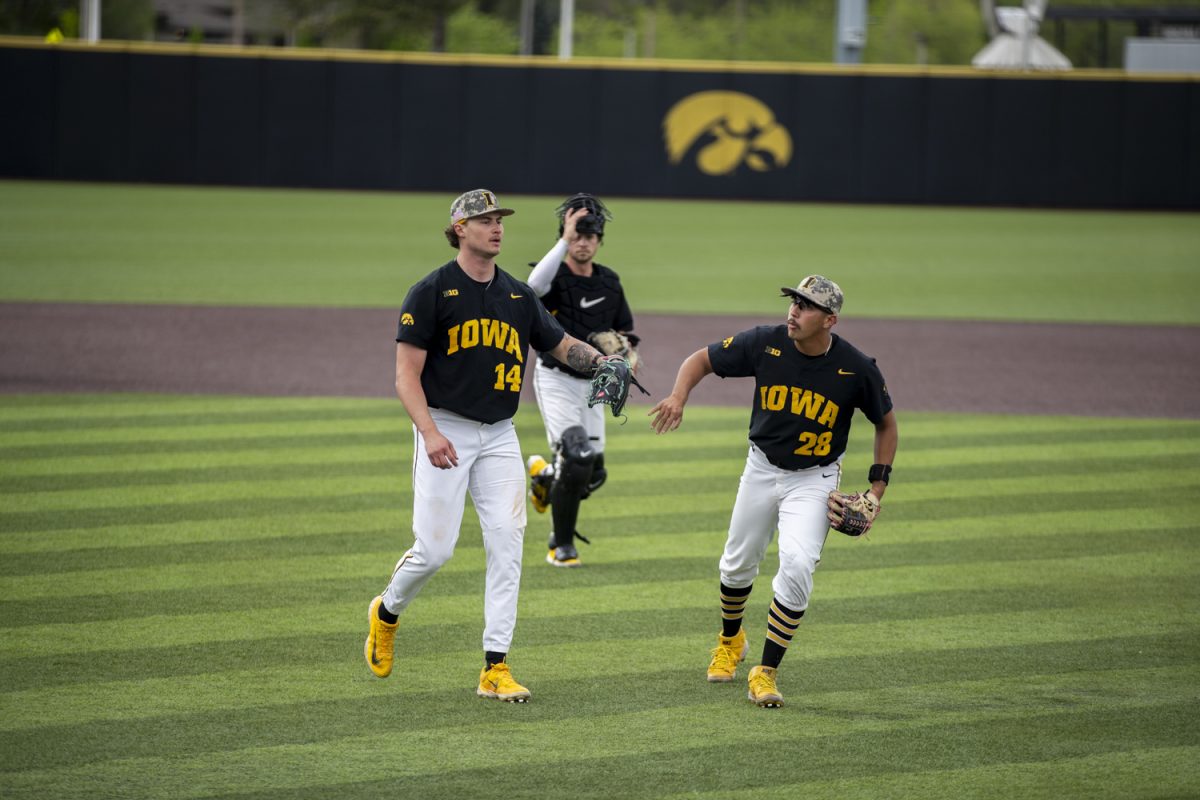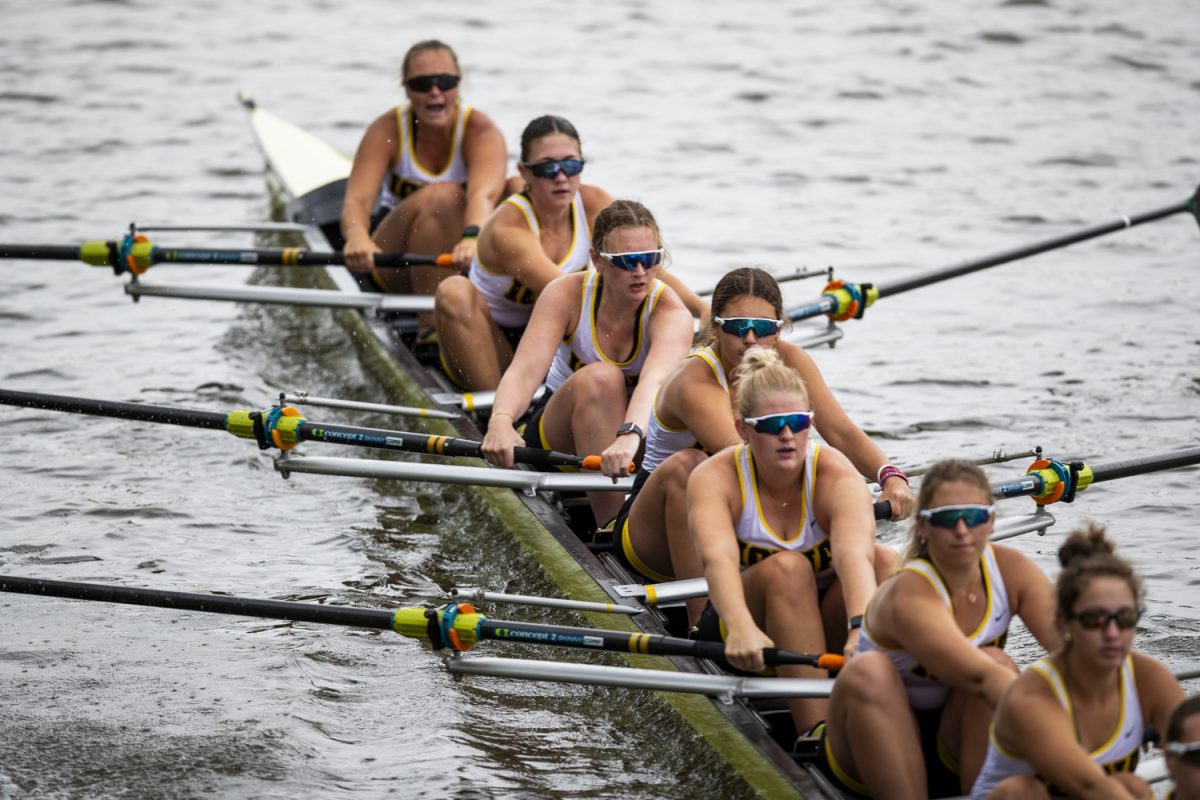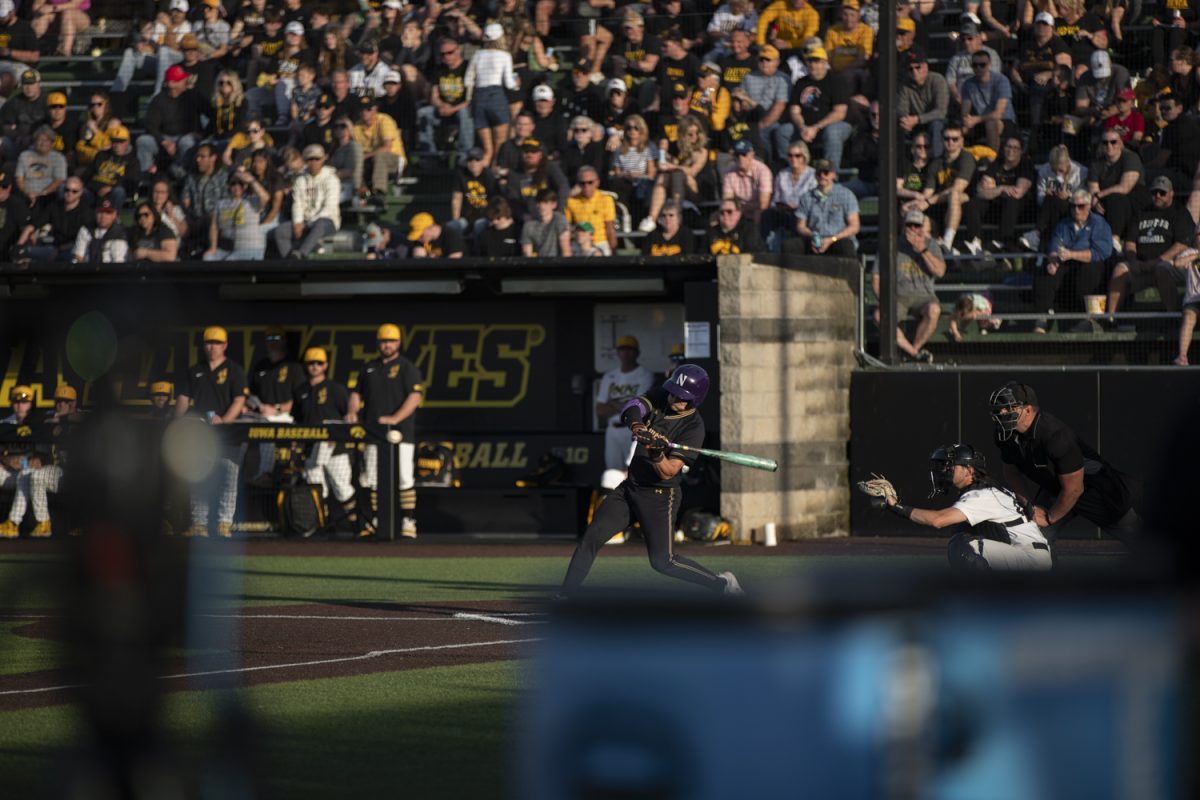Instead of wearing a black and gold Iowa uniform during a meet, some athletes on the women’s track and field team wear something a little less traditional. Sometimes it’s a neon green or pink running shirt — which means the athlete is not officially running for a team during the season.
But there is still a purpose to their racing.
These athletes are running unattached. They technically have no school affiliation during meets, but there are a number of reasons they run unattached. Often they are redshirt athletes.
"If they’re not going to race for Iowa, the only other option for them is not to race," head coach Layne Anderson said. "And racing is important to their development."
Sometimes, running unattached is injury-related. And sometimes, it might be a combination of the two. One example of this is freshman Keelin Gorman, who was sick at the beginning of the outdoor season. Anderson said Gorman was going to run at the Cornell Open on April 9 but wasn’t feeling up to it.
"There’s a huge advantage running for yourself because you are the person who is making the calls," said Evelyn Ross, a volunteer assistant coach for Iowa who also runs unattached. "If you’re really feeling bad on any given day, you can decide not to race, and it’s not going to affect anyone else or hurt team points."
So because Gorman ran unattached this season, there was no pressure.
"There’s certainly a lot to be gained from racing, that’s a big part of what we do," Anderson said. "And that’s the built-in advantage of running unattached, is you’re racing without using eligibility."
Take Diane Nukuri Johnson — a former Hawkeye who graduated in 2008 and is still coached by Anderson — as well as Ross. Both compete unattached post-college.
Ross competed at the Drake Relays on April 28-30 and the Mount Sac Relays on April 14-16 in preparation for the 2011 USA Championships.
Nukuri Johnson ran in the 3,000-meter at the Musco Invitational on April 23 with Iowa runners and finished fourth. Junior captain Betsy Flood said almost every 3K she’s run, Nukuri Johnson has been in.
"I think maybe every 3K, she’s always helped out; it was nice to have her," Flood said. "We agreed to switch off laps and help each other."
On March 20, Nukuri Johnson, now sponsored by Asics, finished fourth among women in the Los Angeles Marathon. Her time qualified her for the 2012 London Summer Olympics, where she will compete for her home country, Burundi.
"I like to just jump in and race and hopefully help out," she said. "And just help the girls run fast times."
Post-college unattached runners face barriers college athletes don’t, such as financially supporting their racing and sometimes not having other athletes to train with. Nukuri Johnson and Ross are in a little different situation because they are fortunate to have Anderson still coach them, they get to train with each other, and they still get to train with current Iowa distance athletes.
"Doing something like [running unattached] … you’re putting yourself on the line because you’re not representing a school," Ross said. "You’re representing yourself."
There are a number of reasons and types of athletes who run unattached, but the main thing for these runners is simply to race. Whether it’s the beginning of the season or to further their development, racing is a bonus.
"You certainly don’t want to over-race," Anderson said. "But there’s never anything wrong with racing."






